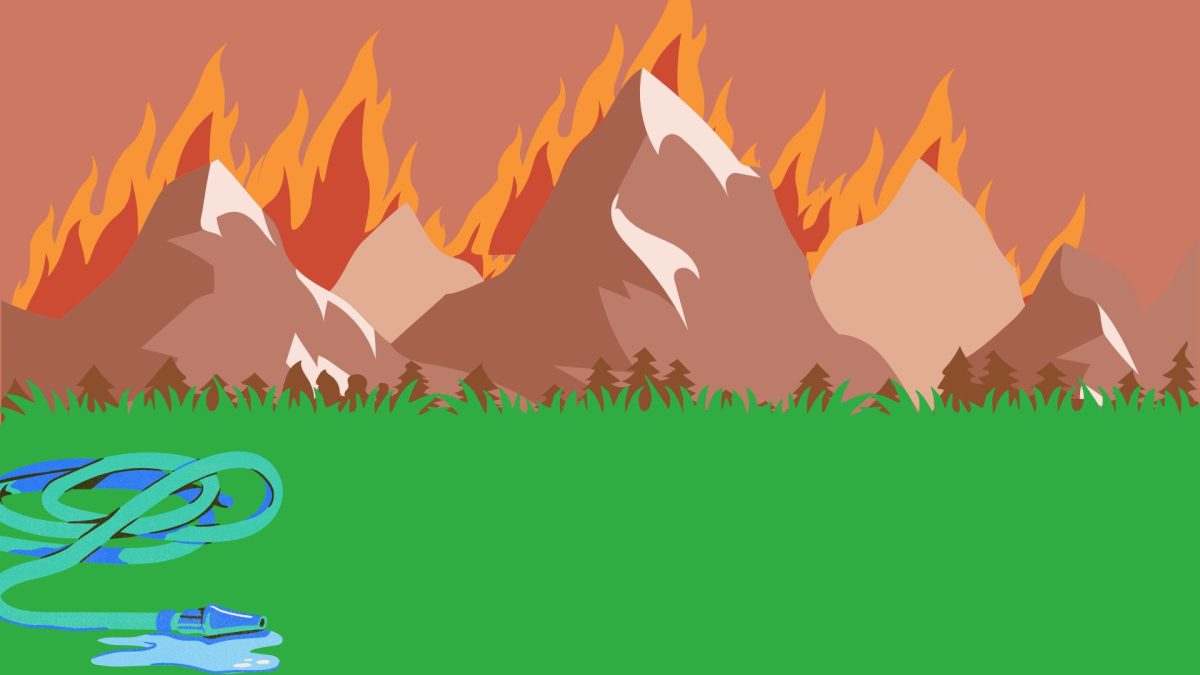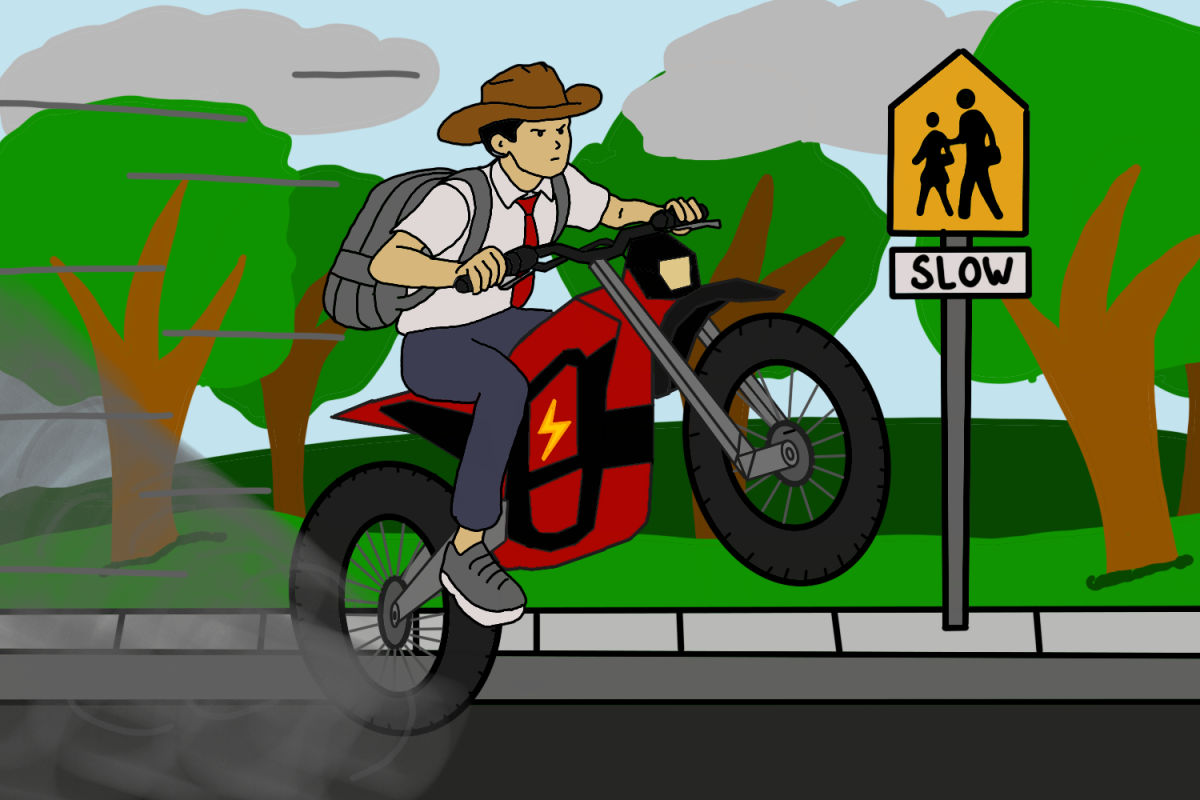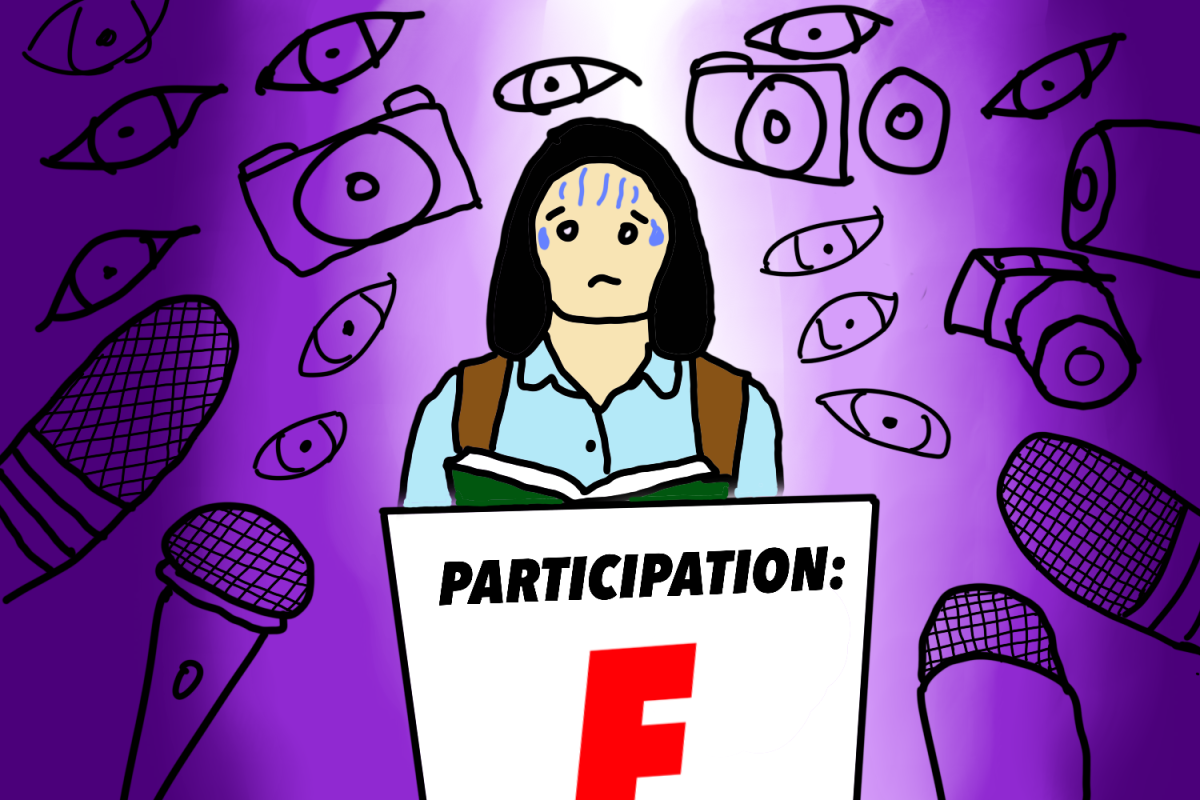We know fires pose a great risk to the state of California. Recently, the Eaton Fire, one of the most destructive fires to occur in Southern California, destroyed nearly 9,000 homes and businesses and killed 19 people.
Living farther down from the mountains, we tend to forget people’s livelihoods suffer because we are not directly involved or affected by the fire. It’s imperative we take measures to prevent the risks of fire in the future so this will not happen again.
The first step we can take to prevent fires from occurring is to lessen the chances of a spark from occurring. It’s an important reminder to be knowledgeable about what can start a fire. Checking the weather conditions is a smart way to prepare for hiking or camping. If an individual or group plans to camp out somewhere, they must make sure the contained fires they start are properly extinguished. According to the DOI, this means dousing the fire with water until it’s cool to the touch. Along with that, it’s noteworthy to make sure one does not drive on dry grass, as the exhaust temperature may spark a fire along the brush. Leaving or using flammable substances around dry areas of grass or bush may heighten the risk of a fire occurring.
Being aware of our current changing environment or surroundings are also very important. Powerful winds may raise the fire risk and spread sparks into nearby brush. Not only that, fires like the Eaton Fire may have been caused and spread by a faulty or downed power line. But due to a lack of reporting of the scene, the fire quickly escalated. A faulty transmission line from the Southern California Edison (SCE) likely caused the initial spark.
The SCE has revealed the Mesa-Sylmar line, which spans miles through the Angeles National Forest (ANF), showed “signs of potential arching and damage on the grounding equipment…but said it did not know when that damage occurred.”
One of the reasons why the Eaton Fire was able to spread to such an extent was because of the lack of water. Some fire hydrants ran dry because of a lack of pressure and leaks. Due to the height of the mountains, especially near the hilly areas, the gravity-dependent tanks simply did not have enough water to create the pressure required to push the water out. Firefighters had to bring in more water from external sources as the fire hydrants they were using ran out of water. Over consumption of water in our homes may have prevented firefighters from accessing this valuable resource during crucial moments.
In order to prevent another water shortage, it is important to limit our intake of water at home. As reported by LADWP, cities like Arcadia, Beverly Hills, and West Hollywood have input recommendations to limit watering days to only two days a week and within specific time frames.
To save water, the Los Angeles Department of Water Resources (DWR) recommends we take shorter showers, monitor faucet leaks, and simply turn off the water while brushing our teeth. With California in a drought, it is much more important to use less water at home. It should be noted even a small leak from faucets or shower heads may waste a gallon of water a day. That’s nearly 30 gallons a month! Fixing a small leak may save hundreds of dollars and will aid in the prevention of starting or spreading a fire.
“I think it’s a great idea that we are saving water through even just small actions like turning off your lawn sprinklers earlier or limiting bathroom use,” exclaimed freshmen Mio Tsai. “Even small actions count to a big cause!”
As all of humanity, we should all take part in the prevention of fires and regulate our water intake. Integrating these important reminders into daily routines will ensure future safety for those living near fire-prone areas, such as near the mountains. Avoiding fires will help us save our Earth.







